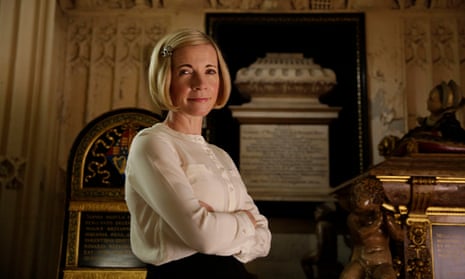Prejudices that led to witch-hunts hundreds of years ago have not disappeared and women are still on the receiving end of men’s anger, a leading historian has said.
Writing in the Radio Times, Lucy Worsley, a historian and author, said: “[Although] we like to think we’re better than the people who hunted witches, witch-hunting still happens in some parts of the world today.”
The prejudices that led to witch-hunts in the 16th and 17th centuries continue to exist and women, especially outspoken ones, were still targeted by men, she said.
This article includes content hosted on theguardian.. We ask for your permission before anything is loaded, as the provider may be using cookies and other technologies. To view this content, click 'Allow and continue'.
She said: “The prejudices that led to witch-hunts haven’t completely disappeared. It’s still the case that women – especially odd-seeming, mouthy ones – often feel the anger of the men whose hackles they raise.
“Today, ever so many people, but perhaps women in particular, feel a sense of kinship with our ancestors who were persecuted in this way. Anyone who has ever been put down as a ‘difficult’ woman hears a distant echo of the past.”
The historian’s four-part series, Lucy Worsley Investigates, takes a closer look at the experiences of people who “lacked power in the past”, with one such example being Agnes Sampson, a Scottish woman who was accused of being a witch and burned at the stake in 1591.
On International Women’s Day in March, the first minister of Scotland issued an apology to the 4,000 people in the country, the vast majority being women, who were convicted and often executed under the Witchcraft Act of 1563.
“Those who met this fate were not witches, they were people, and they were overwhelmingly women,” Nicola Sturgeon said. “At a time when women were not even allowed to speak as witnesses in a courtroom, they were accused and killed because they were poor, different, vulnerable or in many cases just because they were women.”
According to Worsley, Sampson was only one of the many women accused of witchcraft in 16th- and 17th-century Scotland, and “represents represents ever so many more”.
She said: “I’m glad, 400 years later, that people reading this will also learn of her name and achievements, as well as the horrible, unjust way in which her life came to an end.”
Worsley, who was awarded an OBE in 2018 for her services to history and heritage, is the joint chief curator and Historic Royal Palaces.
Lucy Worsley Investigates: The Witch-Hunts is on BBC Two on Tuesday 24 May at 9pm.
